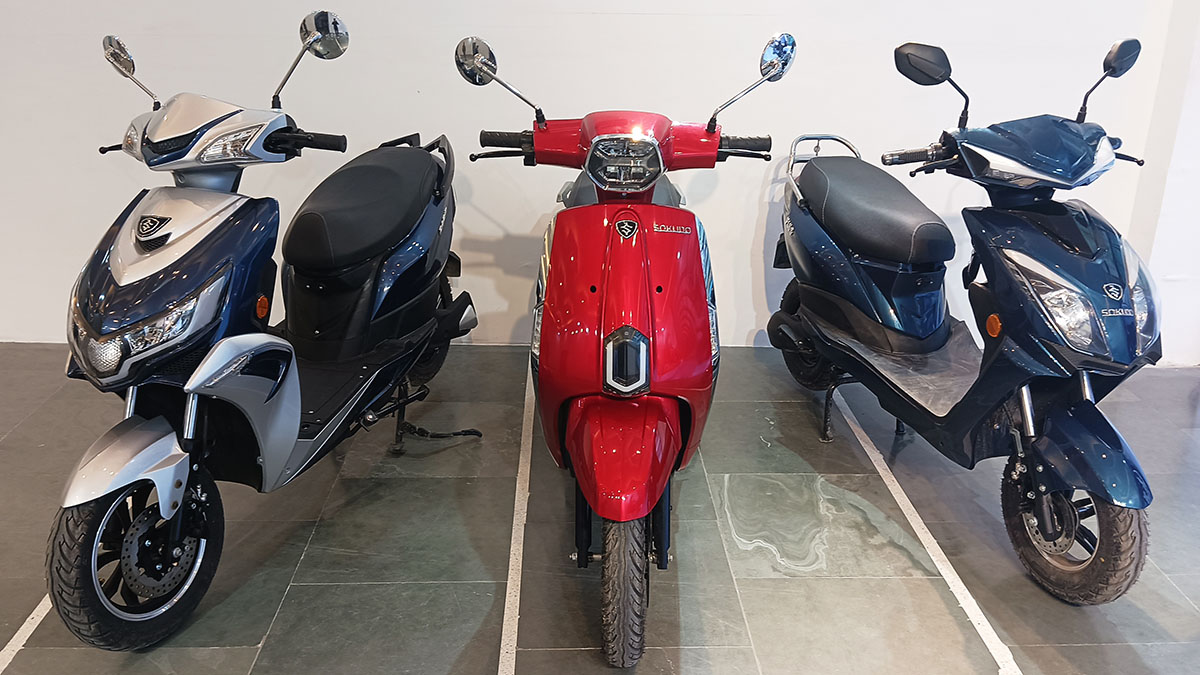The Indian government’s ambitious Make in India initiative, aimed at transforming the country into a global manufacturing hub, has significantly impacted various sectors, including the burgeoning electric two-wheeler (E2W) industry.
Rise of electric two-wheelers in India
India’s electric vehicle market, particularly the electric two-wheeler segment, is on an upward trajectory, thanks to a confluence of factors such as increasing environmental awareness, favorable government policies, and advancements in EV technology. The government’s push towards electric mobility is evident in its comprehensive policy framework designed to foster the growth of the EV ecosystem. Initiatives like the Faster Adoption and Manufacturing of (Hybrid &) Electric Vehicles in India (FAME India) Scheme and the Production Linked Incentive (PLI) Scheme for the Automotive Sector have been instrumental in this regard.
Economic impact on job creation
The adoption of electric two-wheelers is not just a step towards sustainable transportation but also a significant economic opportunity. The EV market in India is expected to grow at a compound annual growth rate (CAGR) of 49 per cent between 2022 and 2030. This growth is anticipated to catalyze the creation of five crore direct and indirect jobs by 2030. In addition, it is expected to prompt growth and boost demand for other key segments of the industry, such as battery manufacturing, electric charging infrastructure development, and R&D efforts. This boost in employment opportunities will benefit the skilled workforce and contribute significantly towards the growth of the nation, underscoring the economic potential of the electric two-wheeler industry.
Low operating costs and reduced dependence on oil imports
The key benefits of electric two-wheelers extend beyond environmental advantages. This is because they need lower operating costs due to reduced fuel and maintenance expenses. Electric two-wheelers also contribute to energy security by reducing dependence on imported oil, aligning with India’s goals for self-reliance under the Make in India initiative.
Enhancing green impact and boosting EV adoption
Electric two-wheelers are pivotal in reducing carbon emissions, a critical factor in combating climate change. By transitioning from conventional internal combustion engine vehicles to electric two-wheelers, India can significantly lower its carbon footprint. EVs, including two-wheelers, are more energy-efficient, converting about 60 per cent of the electrical energy from the grid to power at the wheels, compared to the 20 per cent efficiency rate of conventional vehicles. This efficiency not only reduces energy consumption but also cuts down on emissions of greenhouse gases and other pollutants.
Impact Shorts
More ShortsGovernment policies driving growth
The Indian government has implemented several policies to accelerate the adoption of electric two-wheelers:
FAME India Scheme Phase-II: With an outlay of Rs10,000 crore, this scheme aims to support the electrification of public and private transport and has allocated a significant portion of its budget to incentivize the purchase of electric two-wheelers.
PLI Scheme for the Automotive Sector: Launched with a budgetary outlay of Rs25,938 crore, this scheme aims to boost domestic manufacturing of advanced automotive technology products, including electric and hydrogen fuel cell vehicles.
PLI Scheme for ACC battery storage: This scheme was introduced with an outlay of Rs18,100 crore to enhance the manufacturing capabilities of advanced chemistry cell (ACC) batteries in India.
These policy interventions coupled with the reduction of GST on electric vehicles from 12 per cent to 5 per cent and other fiscal incentives have laid a solid foundation for the growth of the electric two-wheeler industry in India. While the path to electrification presents challenges, such as the need for robust charging infrastructure and technological advancements, the government’s proactive approach is addressing these issues.
The Make in India initiative has positioned India as a significant player in the global EV market, fostering innovation and encouraging investments. In addition, other supportive government policies are further accelerating the electric two-wheeler industry’s growth, contributing to economic development, job creation and environmental sustainability. As India moves towards its goal of net-zero emissions by 2070, the electric two-wheeler industry exemplifies the country’s commitment to sustainable development and economic prosperity. The journey ahead is promising, positioning India as a leader in the global electric mobility space and setting a benchmark for the green revolution.
The author is CMD, Sokudo Electric India Pvt. Ltd. Views expressed in the above piece are personal and solely that of the author. They do not necessarily reflect Firstpost’s views.


)

)
)
)
)
)
)
)
)



